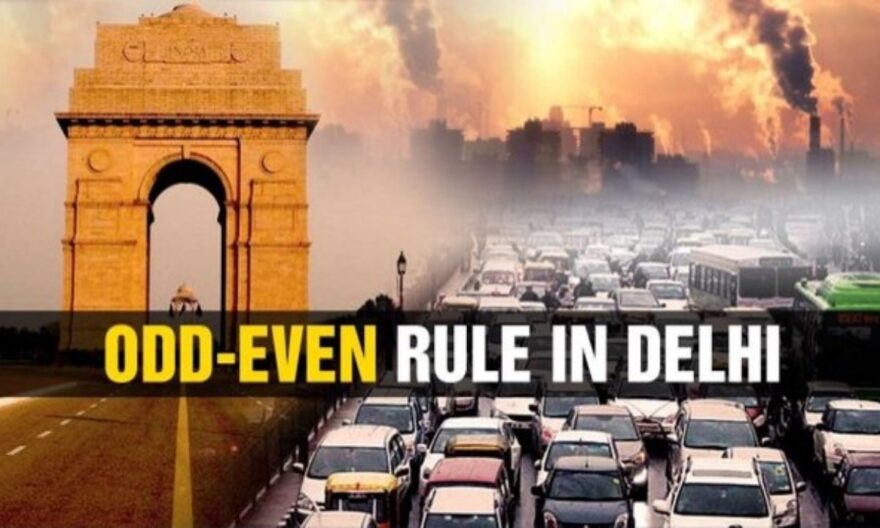
Delhi’s air quality has further deteriorated, nearing the “severe plus” category, potentially prompting the enforcement of the odd-even car rationing measure in the capital.
As of 7 am, the city’s air quality index (AQI) worsened to 437 from 419 at 4 pm on Thursday. The 24-hour average AQI, recorded at 4 pm daily, was 401 on Wednesday, 397 on Tuesday, 358 on Monday, 218 on Sunday, 220 on Saturday, and 279 on Friday.
The relatively better air quality last weekend is attributed to rain. Subsequent days witnessed a surge in air pollution due to intense firecracker bursting on Diwali night and a resurgence in stubble burning in neighboring states.
These effects were compounded by unfavorable meteorological conditions, primarily calm winds and low temperatures, hindering the dispersion of pollutants. Neighboring Ghaziabad (374), Gurugram (404), Greater Noida (313), Noida (366), and Faridabad (415) also recorded very poor to severe air quality.
An AQI between zero and 50 is considered good, 51 and 100 satisfactory, 101 and 200 moderate, 201 and 300 poor, 301 and 400 very poor, 401 and 450 severe and above 450 severe plus.
Earlier this week, Delhi Environment Minister Gopal Rai mentioned the possibility of reinstating the odd-even car rationing measure if the AQI surpasses the 450-mark.
The measure, implemented four times since 2016, allows cars to operate on alternate days based on the odd or even last digit of their registration numbers, with the last enforcement in 2019. The government recently postponed its implementation after notable air quality improvement due to rain.
A joint project by the Delhi government and IIT-Kanpur found that vehicular emissions accounted for about 38% of the capital’s air pollution on Wednesday, reducing to 25% on Thursday. Secondary inorganic aerosols, such as sulfate and nitrate, contributed 30 to 35% to the recent air pollution.
Calm winds and low temperatures are allowing the accumulation of pollutants, and relief is unlikely over the next few days, according to an official at the India Meteorological Department (IMD). An improvement in wind speed from November 21 onwards might bring down air pollution levels.
Despite stringent measures by the state government, including a ban on construction work and the entry of diesel-guzzling trucks into the city, Delhi’s air quality has worsened. IQAir, a Swiss air quality monitoring company, ranked Delhi as the most polluted city in the world on Thursday.
A system developed by the Pune-based Indian Institute of Tropical Meteorology indicated that stubble burning accounted for 7.5% of the air pollution in the capital on Thursday, expected to decrease to 3.5% on Friday and 3% on Saturday.
Stringent measures under the Graded Response Action Plan (GRAP) will continue in the national capital until further orders, according to an official of the Commission for Air Quality Management (CAQM).
The Delhi government has established a six-member special task force (STF) to ensure strict implementation of measures outlined in the GRAP. The STF, headed by Delhi’s special secretary (environment), includes senior officials from the departments of transport, traffic, revenue, Municipal Corporation of Delhi, and Public Works Department.
Doctors emphasize that inhaling Delhi’s polluted air is equivalent to the harmful effects of smoking approximately 10 cigarettes a day. Prolonged exposure to high pollution levels can cause or exacerbate respiratory problems such as asthma, bronchitis, chronic obstructive pulmonary disease (COPD), and significantly raise the risk of cardiovascular disease.
Unfavorable meteorological conditions, combined with vehicular emissions, paddy-straw burning, firecrackers, and other local pollution sources, contribute to hazardous air quality levels in Delhi-NCR during winters.
According to a report from the Energy Policy Institute at the University of Chicago (EPIC) in August, air pollution is shortening lives by almost 12 years in Delhi.




